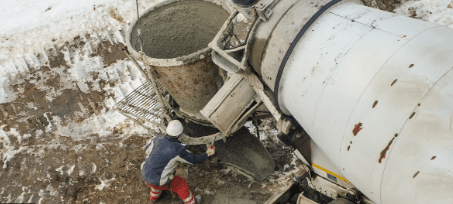Why Concrete Is Able to Resist Extreme Temperatures In National City?

Concrete Is Fireproof
It is well known that concrete is fireproof. This is because concrete is not combustible. It does not burn and it does not produce smoke or toxic gases when exposed to fire. Concrete structures are often used as firewalls to protect adjacent buildings from fire spread.
Concrete Can Withstand High Winds
Concrete structures are able to withstand high winds because of their weight and mass. The weight of concrete structures helps to anchor them to the ground, making them resistant to high winds and hurricanes.
Concrete Buildings Offer Good Protection From Tornadoes
Tornadoes are one of the most destructive weather phenomena on earth. They can cause severe damage to homes and other buildings. However, concrete buildings offer good protection from tornadoes. This is because concrete buildings are designed to withstand high winds and flying debris.
Concrete Houses Can Withstand Flooding
Concrete houses can withstand flooding better than houses made of other materials. This is because concrete is not affected by water. It is also resistant to mold and mildew, which can cause health problems.
Concrete Is Resistant To Mold And Mildew
Concrete is resistant to mold and mildew because it is not affected by water. Mold and mildew need moisture to grow, so they are not a problem in concrete structures.
Concrete Buildings Offer Good Protection From Earthquakes
Earthquakes can cause severe damage to homes and other buildings. However, concrete buildings offer good protection from earthquakes. This is because concrete buildings are designed to withstand the shaking and vibrating caused by earthquakes.
Concrete Is Not Attacked By Insects Or Rodents
Insects and rodents can cause severe damage to homes and other buildings. However, concrete is not attacked by insects or rodents. This is because concrete is not a food source for these pests.
Concrete Does Not Rot
Wooden structures are susceptible to rot, but concrete does not rot. This is because concrete is not affected by water or moisture.
Concrete Is Not Affected By Salt Water
Salt water can damage wooden structures, but it does not affect concrete. This is because concrete is not affected by water or moisture.
Concrete Is Not Attacked By Acidic Substances
Acidic substances can damage wooden structures, but they do not affect concrete. This is because concrete is not affected by water or moisture.
Concrete Does Not Rust
Rust is a common problem with metal structures, but concrete does not rust. This is because concrete is not affected by water or moisture.
Concrete Is Not Affected By UV Rays
UV rays from the sun can damage wood, but they do not affect concrete. This is because concrete is not affected by UV rays.
Conclusion
Concrete is a durable material that can withstand extreme weather conditions. It is fireproof, resistant to high winds, and can withstand earthquakes and flooding. Concrete is also resistant to mold, mildew, insects, rodents, and rust. For more information, contact Concrete Contractor National City at (619) 678-0060.